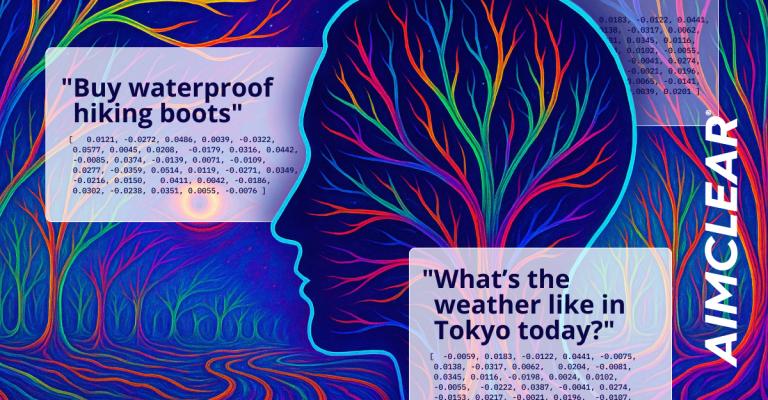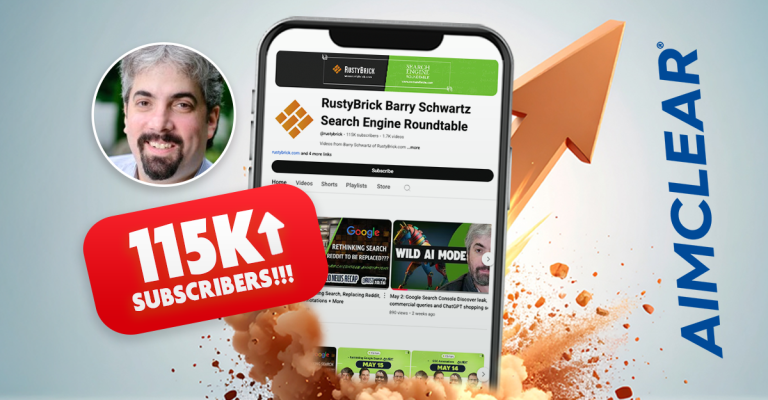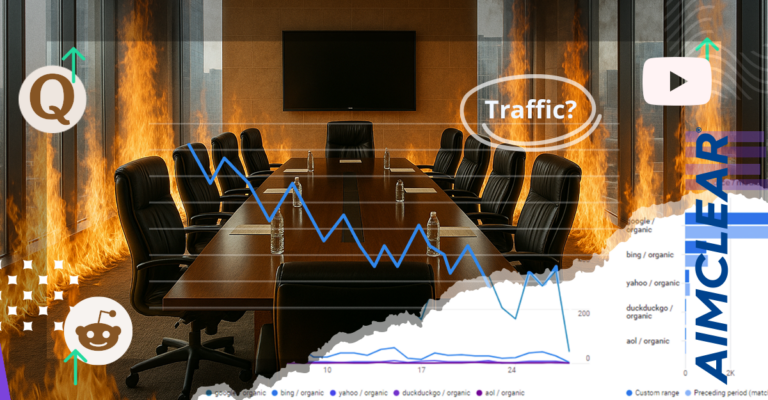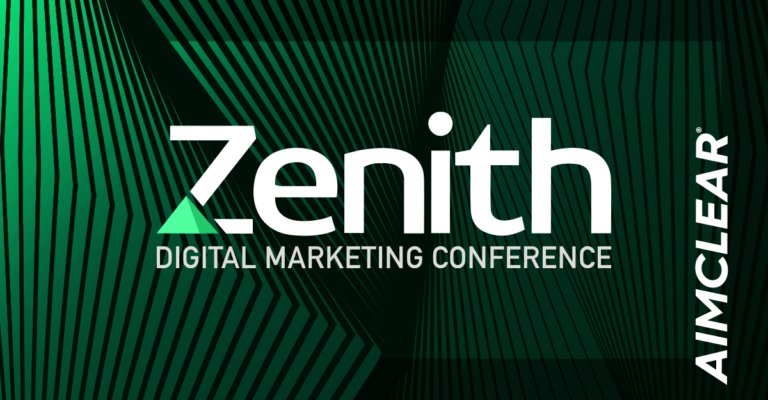
Newsflash from #SMX Advanced Seattle, 2011! There’s more to Local SEO than claiming your business page on Google. Local SEO pros David Mihm, President, GetListed.org, Mike Ramsey, President, Nifty Marketing, and Will Scott, President, Search Influence know this, and they geared up for the final session at SMX Advanced to share Hardcore Local SEO Tactics of their own.
Under the lead of moderator Matt McGee, Executive News Editor, Search Engine Land, & Rhea Drysdale, Co-Founder & CEO, Outspoken Media, Inc. on Q&A, this one a must-attend event for businesses looking to beef up their local SEO. Let’s take a look at the full effect, eh?

Matt McGee welcomed the speakers, and then the first up-at-bat, Mike Ramsey, took to the podium. Mike started off by confessing that he loves Twitter profile pictures. Above all, he loves, why… Matt McGee’s! Why does he love it? The color contrast- black against [pale] white; the (one) eye follows you everywhere; that knock-ya-out smile. What does this have to do with local SEO? Absolutely nothing.
So, without further adieu, it was onto Mike’s presentation… A.K.A…
The Nifty Report: 2011
This report was a deep dive into data of local search results his team had recently conducted, examining four different search phrases across four different locations, all pertaining to dentist listings. Interestingly enough, the results all integrated o-pack results (not 7-pack results). Bear in mind, there are two different algorithms that determine 0-pack results vs 7-pack results. Mike looked at the listings for those links that ranked 1-7, then 50-56.They wanted the wide gap to observe obvious differences in high vs. low ranking sites. Essentially, the findings we looked at spanned 28 high ranking listings vs 28 lower ranking listings.
Right-o. Onward!
Places Page Data
- The first thing on the SERPs are claimed listings.
- Typically, claiming your listing is a rule of thumb SEO tactic – but the data shows it might not be the biggest deal regarding improved rankings.
- Claiming listing gives you control over how listing appears (that’s good!)
- But it does not necessarily affect ranking
- Some of the highest ranking listings in this study were actually NOT claimed. Interesting.
- The ones that are really doing poorly… 20 of the 28 listings were claimed. Very interesting…
Exact Category Matches
- Google lets you define specific categories for your places pages.
- If your category is “personal injury lawyer,” “personal injury lawyer chicago,” is considered an exact match.
- 20 of the high ranking sites had exact categories, 14 did not.
- It’s considered the third most important factor in the study.
Google Reviews, Citations, & Other Offsite Factors
- It’s hard to say that general reviews have a cause of rankings, but they do count as citations.
- Google has shown less & less citations on places page over the years. Once, they had a tab on a given places page chock-full of citations. Now… not so much.
- Average citations for top ranked listings is only 36, which is very low, compared to the 100s that used to show.
- A lot of people are saying, “Citations are dead!” but when you look at the data from Mike’s nifty study, it’s not entirely true.
“Citations can still say ‘I’m kinda a big deal'” – Mike Ramsey, Nifty Marketing
- Generally, offsite SEO factors are still incredibly important.
- OSE links- very important. How important? The 7th most important factor!
- Linking root domains are still very important, as well.
- OSE exact match anchors – only 2.8% avg across the links are exact match. Mike noted this is around where it should be (otherwise, shady).
- Overall KWs in links – majority of links pointing to website are branded. That’s good!
“If citations were the new links for local in 2009-10, then links are the new citations for local in 2011-12.” – Mike Ramsey, Nifty Marketing
On-Site Data
- Average page authority is important, of course- in fact, it’s the 10th most important ranking factor.
- Overall, domain authority is more important than authority of landing page. It’s the 2nd most important factor.
- Business name in title tag of landing page – also important. [Author’s note: Ahhh that slide went by too fast for me to capture anything else.]
- Only 1 out of 56 listings had phone number or address in title tag. A.K.A.: Not that crucial.
- City keywords in title tag, also important factors; 22 of the high ranking sites featured them.
- Point at pages that have hot title tags (name, address, phone # [NAP]) – one site did this, and within in 15 min, moved up inthe SERPs dramatically. In. Fifteen. Minutes. Wow!
Takeaways: Focus on…
- Exactness in place (citations categories, content)
- Authority (quality links)
- Trust in views (CTR & UGC)
With that, Mike wrapped up his warp-speed awesome session. Next up was my friend (I think he’d let me call him that), Will Scott.
Tactics on the Agenda
- Community edits
- Alternative citation sources
Community Edits
If you work in local, you might see listings for your address that aren’t you. It’s not uncommon for there to be overlap between you, and people who used to occupy your business space, or people to claim your “address” if you work in an office building that houses multiple companies.
Google’s Map Maker, will says, is like the “Pay It Forward Mechanical Turk .”
Some workarounds: manually poke at the listing until it moves. (A.K.A. make edits until it moves from the top spot.) This isn’t easy, nor is it immediate. Here’s a look at two instances where Will’s team did this for clients.
Will’s advice: Consider building out your power map maker profile – establish yourself as a trusted maker of edits (think: Wikipedia edits).
Alternatives to Citation Sources
- Article engines – When you publish articles into article engines (hush hush, somewhat shady 🙂 ), you can include your location in the article.
- Remember to include your NAP! (And remember, NAP = name, address, phone number.) That way, your NAP ends up in SERPs under the links from article engines. (ALSO, remember, any mention of your full NAP is a citation.)
- Facebook – Another citation source, showing up with great regularity. FB reviews are showing up, too. Neat!
- Sidenote: If you have a FB page for your business, but dont have a well structured address associated with it, slap yourself. (The “slap yourself” part was from the author. Will said something less rude. I think.)
- “Other” – Citations can also be in the form of reviews that include phone numbers near links.
- “All the World’s a Citation!” Leverage city forums, mama forums, association websites, etc.
Will wrapped up nicely, and then David Mihm took the stage to round out the session.
Agenda:
- Opportunities
- Blended SERPs
- Multi-location tips
- What matters in competitive markets
[Author’s note: Please allow me to preface this by noting that David Mihm is one of the speediest presenters I’ve ever encountered. I did my best to capture all of the awesome data he shared with us.]
Opportunities
- What phrases are you behind your competition in? Look at local as a way to get additional page views.
- When does the map / blended results show up?
- How many businesses are listed when they show up?
- Geo-targeted vs. generic queries? Check out Google Insights to glean what generic phrases are getting the volume. This can help you understand where it’s worth putting in effort.
Got a boss who isn’t convinced of investing in Local? Do this now:
Pre-Website Conversion Tidbit– If all you track is the number of people who come to your location page, you’re missing a whole ton of business. People are acting right on the place page – not necessarily visiting your site to get your NAP (provided it’s in the snippet 🙂 ).

David recommends we check out a number of resources, but literally, the only one I captured was seobook.com/localization by Aaron Wall.
- Localized Product search is where it’s at – Google is getting into offline purchasing based on online searches. You can search Google products by zip code. That’s rad!
The Impact of Blended
- Top slot is REALLY important
- Photos are REALLY important
- Understand that local requires a different mindset from traditional SEO
- Traditional SEO is about optimizing websites
- Local SEO is about optimizing locations
- Submit your contact page as your places URL, NOT your homepage
Muti-Location Tips
- Implement flat site architecture, give each site own page, make it unique, indexable
- Cross-link nearby locations with geo-related anchor text
- **CREATE A KML SITEMAP!**
- Check out: geositemapgenerator.com
General(ally) Hard(er) Tips
- Consistency – most important feature.
- Make sure your NAP is IDENTICAL EVERYWHERE on the web.
- Get the citations from sites Google sees, relevant sites
- Claim your listings in a Corporate Google Account
- Make sure email matches the URL of the places you are submitting!
- Whitespark.ca/local-citation-finder – check that out for citations priorities @davidmihm
- Getting reviews can be hard for big brands with many locations.
- Leverage email campaigns
- Segment customers by email address type
- Google email address? Send them to a Google Review page – they don’t have to log in… because clearly… they already… are…
- Consider the people who don’t have Gmail… leverage services such as Avvo, Citysearch, Facebook, etc. (“Everyone and their mother is on Facebook.” – Will Scott)
- Segment customers by email address type
- Leverage email campaigns
- Consider the syndication value of your review sources… for example, Citysearch vs. Yelp. (Citysearch = better, FYI.)
- POS followup – really important.
- Feedback should be a part of yoru every day business profession. Review velocity!
- Caveats
- Know the rules for incentives.
- Don’t fish with dynamite.
- Review threshold
- Orders of magnitude
- Get buy-in from customers & store managers (i.e. franchise stores).
- Get BOTH buy in on the importance of reviews.
- Educate store managers about value in reviews & what they can do to improve.
- Potentially take the up-front risk of SEO campaign.
- Work with store mngrs and custom-messaging teams so you’re all on the same page.
Competitive Markets Tips
- -Get the bulk feed verified!
- Clean up / consolidate old / duplicate listings
- Implement geographic inbound anchor text
- Use custom categories for high-volume, high-conversion KWs, for example…
- “hotel with free wi-fi,” “pet friendly hotel,” “cool coffee shop”
- Get strong industry-relevant review column (this is the order of magnitude)
- Google looks at quality of review
- E.g.: A suburban shop that wants to rank for “downtown” needs a ton more reviews than actual downtown places.
- Geo-social media – leverage services like Panoramio, Flickr – get pics of your places out there!
- Get a REALLY high quality citation. Even just one can tip the needle for you in a very competitive market.
Fun Tidbit Tips
- Wikitravel, not owned by Wikipedia, has a high trust level from Google. Add a listing, get on there!
- Wikipedia – you CAN add geo-coordinates for historical buildings. Do you work in one? Add your NAP! Totally legit!
Biggest Takeaway:
- NAP CONSISTENCY! Super important. Remember that. Make sure Google knows it.
—
Word on the street (according to Matt McGee) is there’s never been a Local SEO session at SMX Advanced. All I can say, after attending this puppy, is that there sure as h3ll better be more. This one was truly amazing. Well friends, that about does it for AIMCLEAR‘s coverage of #SMX Advanced. Stick around later this week for a full round-up of session takeaways and links to all of our blog posts. Until then, cheers!










